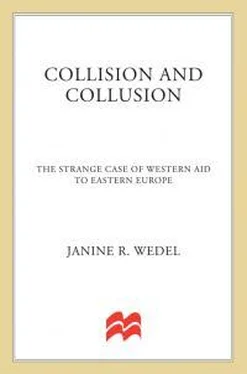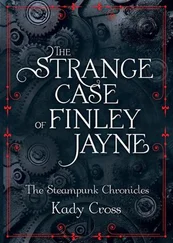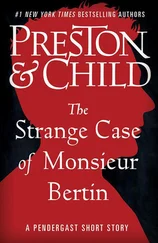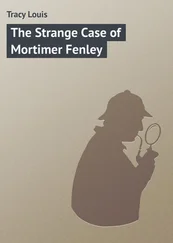Thus, despite talk of resurrecting a First World model through a “Marshall Plan,” donors, in a hurry and with restricted and scattered resources, largely implemented a Third World model. Neither model was informed by sociological, political, or economic insights from the Second World or took into account the historical legacies of nearly a half century or more of communism from Berlin to Vladivostok.90 But these legacies would be a key ingredient shaping perceptions and relations between East and West and, ultimately, aid outcomes.
PRIDE OF THE SECOND WORLD
Although in theory, donors recognized the distinctiveness of Central and Eastern Europe, the point of reference for many aid providers was their Third World experience. This was an insult to people who were proud of their achievements and of their historical and cultural ties to the West. Despite Soviet domination, the nations of the Second World had made significant progress in the decades following World War II. They had rebuilt war-torn infrastructures, industrialized their economies, and educated their populations. Hungary and Romania, for example, routinely scored in the top three in the International Mathematical Olympiad, an annual international secondary-school competition.91 As Walter Mientka, Secretary of the Olympiad Advisory Board, explained, “The former socialist countries always did quite well.… The key is the nature of their education.”92 Literacy levels and educational standards generally far surpassed prewar levels.
Many Central and Eastern Europeans considered themselves exemplars of European culture and civilization and saw communism as a forcibly imposed alien system. They were insulted to see their nations likened to Third World ones and not to be consulted about the course of development.
This sentiment contributed significantly to difficulties of the United States in working out bilateral assistance agreements with many countries in the region.93 When the United States presented boilerplate aid agreements typically made for the Third World to the Visegrád countries (Poland, Hungary, the Czech Republic, and the Slovak Republic) and expected them to sign on the dotted line, all four evinced reluctance to comply. Their officials explained that the hesitation was due in large part to being treated like Third World peoples. Of particular concern to recipient officials were the U.S. requests for diplomatic immunity and privileges for all technical assistance workers—that is, for aid-paid consultants who did not have diplomatic standing (and thus did not already have such privileges). The draft agreements also included requests for aid workers to be exempted from income taxes and duties on alcohol and tobacco, a request that also was viewed as unnecessary “high living,” and was poorly received.
The Visegrád countries responded by delaying the completion of bilateral negotiations for several years and refusing U.S. requests for American diplomatic immunity. Their officials indicated that no other donor countries had made such requests, and that, although such arrangements might be acceptable in Third World settings, they were not in Central Europe. As one official remarked, “We have flatly refused [the request for diplomatic immunity]. It is the product in our eyes of some bureaucrats who have difficulty distinguishing the Czech Republic from Shangri-La.”94 Although an August 1992 cable from the U.S. Department of State addressed to the ambassadors of all Central and Eastern European posts urged them to conclude bilateral agreements as quickly as possible,95 two years later (in July 1994) protracted negotiations were still under way in the Visegrád countries. Poland never signed the agreement, although in time the Polish government granted consultants privileges through other means.96
Although few Western officials expressed frustration with their Central and Eastern European counterparts in public, they sometimes denigrated them in private: “They just can’t handle it,” “They are so disorganized,” or “They have no sense of democracy.” Underlying these views was the common Western perception that the new Eastern leaders were either unreformed communists or former dissidents. Neither had any experience with democracy, and all were terribly disorganized. Western aid representatives who treated them as “communist” products replicated the very ethnocentrism that Central Europeans had hated in the Soviets.
While affronted pride was widespread in the region, the Czech government was more emphatic than its Central European neighbors in responding to what the West offered. It spurned much of the aid. If the Third World was defined as a region in which governments received development assistance,97 and if accepting aid signaled that “we’re not yet part of the West” and meant remaining in a supplicant position, then the Czech government’s stance was a way of defining the nation as already part of the West, refusing risk of any affronts to national pride. By refusing to play by the West’s rules, Czech officials differentiated themselves both from their neighbors and from Third World associations. In a speech at the World Bank in 1993, Prime Minister Václav Klaus (previously minister of finance) explained that “after three years of relatively successful fundamental systemic transformation of the Czech economy and society, my experience tells me that the role of external factors in this process is relatively small and that the reform begins and ends at home.”98 Zdeněk Drábek, former aid coordinator of Czechoslovakia, further elaborated: “Many Czechs now proudly believe that Westerners have little to teach us, to show us, to advise.… The attitude has been essentially that we don’t need the money.”99 By, in a sense, beating the West at its own game, the Czech Republic may have helped make itself “deserving” in the competition for the bigger Western favors of membership in the EU and NATO.
Western donors had tended to assume that the East would take whatever was offered. After all, the aid was a gift. Why were they complaining? What the donors had failed to see was that to many Central and Eastern Europeans, a gift was something designed to serve the needs of the recipients. The two sides had differing expectations for what the “gift” would consist of and just what constituted “help.” In the East, “help” from the Soviet Union had usually been regarded as no help at all. Help from the West, on the other hand, in some Eastern countries had come to mean either tangible goods like relief packages or, in the context of an active, organized underground resistance, sizable sums of hard currency to fund opposition activities. The realization that Western “help” now often meant advice, not cash, hit hard.
The issue was a critical one. Anthropologist Marianne Gronemeyer argues that the success of many aid efforts depends on whether aid is interpreted as “help” by the recipients: “However obviously fraudulent use of the word ‘help’ to describe development aid may be, the word continues to be taken as the gospel truth, not least by those upon whom the fraud is committed.”100
Just as “help” wasn’t really help in the new parlance that invaded Central and Eastern Europe, “partnership” wasn’t really partnership. Lurking beneath the donors’ rhetoric of partnership were telltale patronizing idioms, such as that of the development practitioner as physician. The physician-patient analogy implied that the doctor knew best, that the ailing patient would take gratefully to the treatment—no matter how painful—and that the patient was generic (the results would be uniform and predictable from recipient to recipient). János Kornai, an economist and expert on centrally planned economies, wrote in an article on medical metaphors in economics that while much of economic theory “tries to outline the ideal economic system or its individual parts,” a reasonable physician does not ask whether the anatomical structure and physiological functioning of the healthy human organism is ideal, or whether, for example, an optimal human organism should have two hearts.101
Читать дальше












